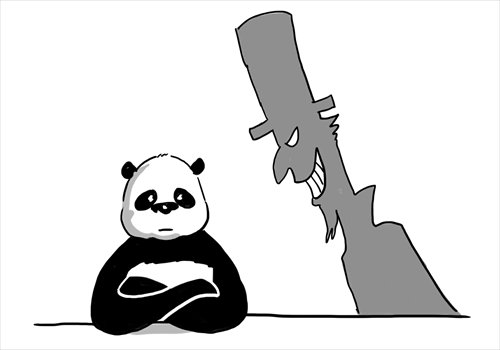


Illustration: Shen Lan/GT
The US rebalance to the Asia-Pacific is Secretary of State John Kerry's focus of his recent visit to Laos and Cambodia. In a report on Monday, Reuters said Kerry's visit aims to "urge Southeast Asia to show unity in response to Beijing's claims in the South China Sea."
It is unlikely that Laos and Cambodia will simply throw themselves on the US, but with Washington ratcheting up its rebalance strategy, the US' leverage in China's periphery is increasing. For that, a reason is that Chinese neighbors need Washington's growing presence.
As an enormous market, the US remains attractive to Southeast Asian countries such as Laos, Cambodia and Myanmar. China is unable to replace the US in this regard in the short run, and the global US promotion of values such as human rights and democracy has also influenced these countries' political lives.
Laos maintains an amiable relationship with China. But recent years have seen the country toning up its connections with the US. This year, a high-level Lao delegation will visit the US, and there will be a summit between both leaderships.
The Lao moves reflect a geopolitical tendency pushed by Washington. The US is making efforts to drive a wedge of distrust between China and its neighbors by manipulating their historical worries about the northern powerhouse, and the current concerns about long-standing territorial disputes.
The escalation of these concerns is resisting the buildup of cooperation between China and its peripheries. China has to deal with Washington's intervention with greater efforts at greater costs. This is the crux that hinders China from being a leading voice in regional political and economic affairs.
For quite a long time to come, Washington's rising influence will shadow China's political and economic activities in its peripheral areas. Beijing's initiatives will be contained by the US-conjured air of distrust.
China should shove back against US intervention, but the US is unlikely to compromise and alter its rebalance strategy. It is unrealistic that China lives in hope that it can improve its relations with its neighbors when the US retreats.
Conventional wisdom argues that, for geopolitical reasons, China's neighbors will have to depend on China to develop. They say as long as Beijing keeps expanding and enhancing cooperation with these countries, it will eventually offset Washington's leverage in rebalancing. Such opinion has a point, but it might overlook Washington's real power.
Right now, the US regards the South China Sea disputes as a major pivot. Kerry has sent a clear message to Laos during this visit that Washington hopes it will help counter China when Laos assumes the rotating presidency of ASEAN this year, instead of following Cambodia, which rejected a China-bashing statement in 2012.
China should reveal Washington's ulterior motives. In the meantime, it should address the repercussions within the framework of ASEAN, and by doing so Washington's leeway for more intervention will be squeezed. In most cases, it is more important to disintegrate the foundations of US assertiveness than engage in a face-to-face confrontation.
China has the wisdom and ability to find a common ground for peaceful co-existence with its neighbors, and it can find a path to protect China's interests while enhancing mutual trust with its neighborhood. Otherwise, only the US will profit, at the expense of the entire region.
China and the US are locked in a perennial game in China's peripheral areas. If China wants to have an edge, it had better not give the US a chance to roll the dice.
 A foreign girl explains what China should be proud of
A foreign girl explains what China should be proud of Chinese navy's air-cushioned landing craft in pictures
Chinese navy's air-cushioned landing craft in pictures Chinese pole dancing master opens class in Tianjin
Chinese pole dancing master opens class in Tianjin PLA holds joint air-ground military drill
PLA holds joint air-ground military drill Charming female soldiers on Xisha Islands
Charming female soldiers on Xisha Islands Beautiful skiers wear shorts in snow
Beautiful skiers wear shorts in snow Getting close to the crew on China's aircraft carrier
Getting close to the crew on China's aircraft carrier Chinese stewardess celebrate test flight at Nansha Islands
Chinese stewardess celebrate test flight at Nansha Islands Pentagonal Mart becomes the largest vacant building in Shanghai
Pentagonal Mart becomes the largest vacant building in Shanghai Top 20 hottest women in the world in 2014
Top 20 hottest women in the world in 2014 Top 10 hardest languages to learn
Top 10 hardest languages to learn 10 Chinese female stars with most beautiful faces
10 Chinese female stars with most beautiful faces China’s Top 10 Unique Bridges, Highways and Roads
China’s Top 10 Unique Bridges, Highways and Roads Rent a womb
Rent a womb Go princess gone
Go princess gone Sex goes high-tech
Sex goes high-tech Scholars call for a ban on churches in Confucius’ hometown
Scholars call for a ban on churches in Confucius’ hometownDay|Week